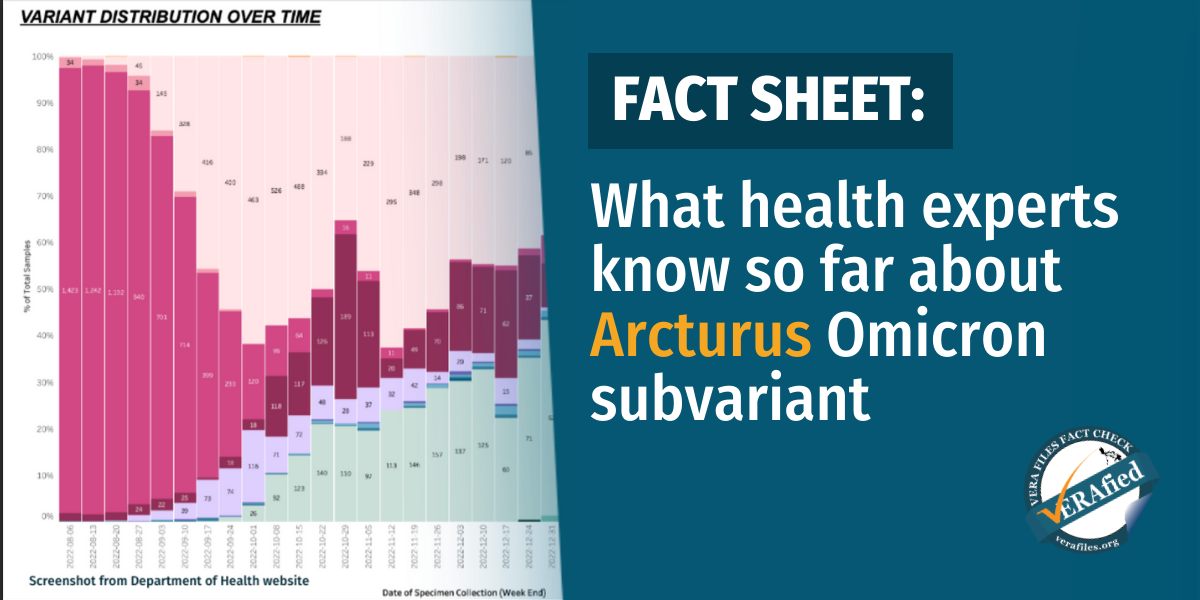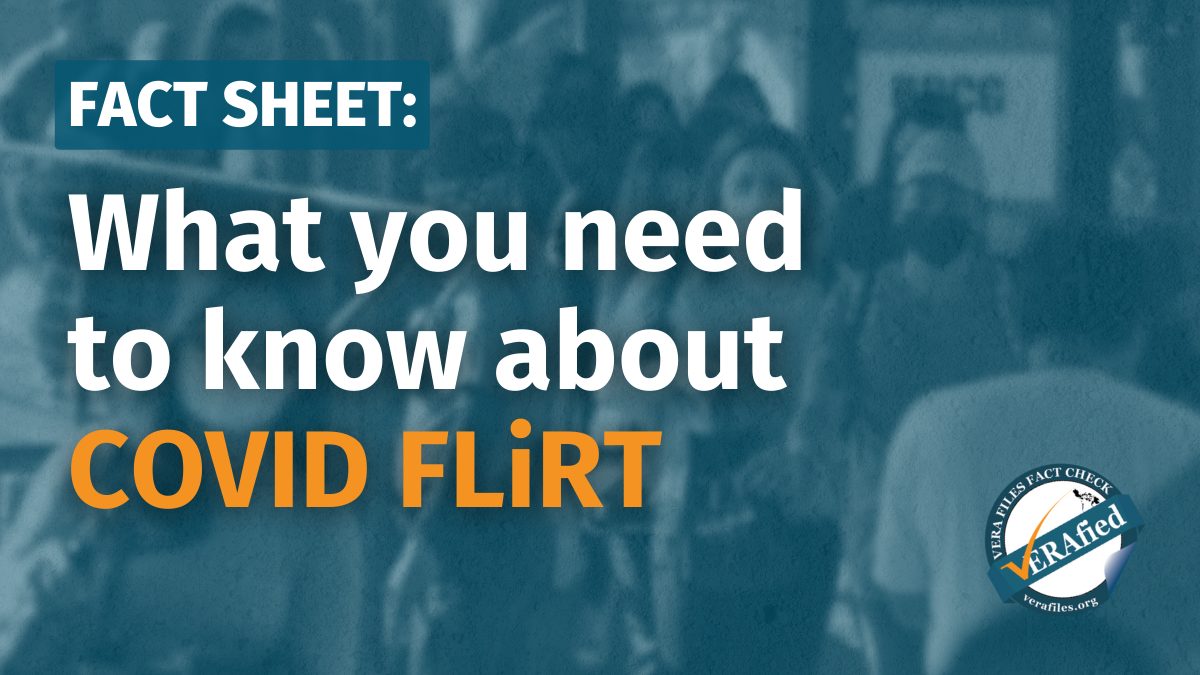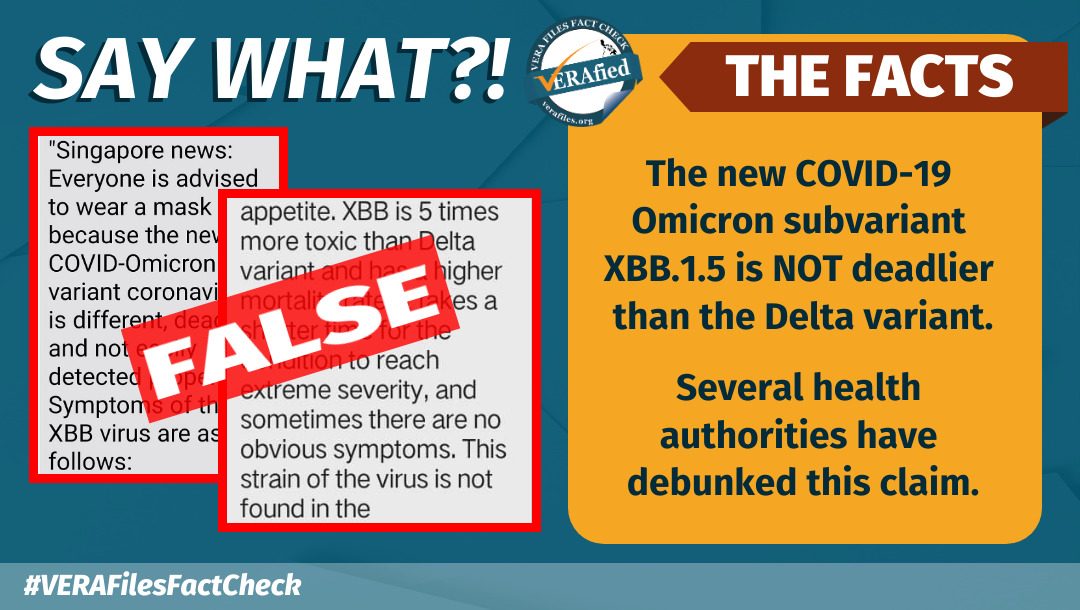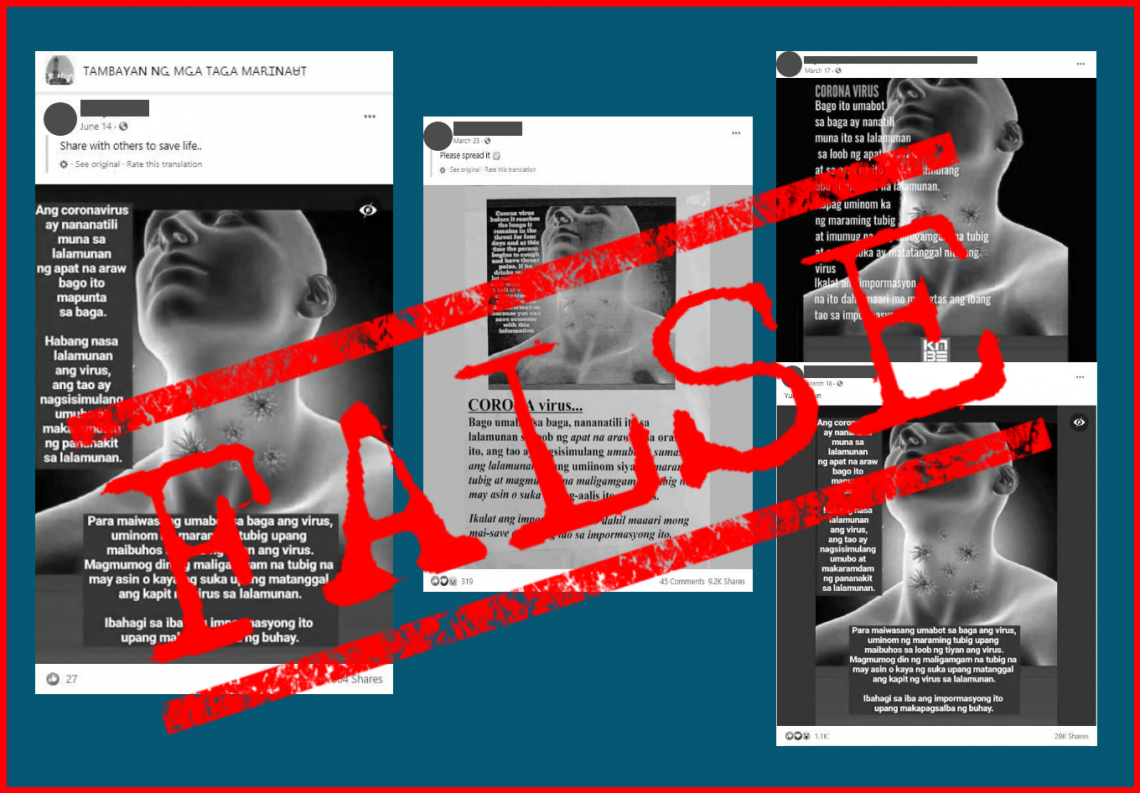Getting updated vaccination “remains to be the most effective and best long-term protection” against the COVID-19 virus, according to the Department of Health (DOH), even as a new subvariant of Omicron was detected in the country earlier this month.
The first confirmed case with the XBB.1.16 or Arcturus subvariant was found in Western Visayas, based on the latest biosurveillance report from April 12 to 17. The patient was asymptomatic and has already recovered.
The DOH reminded the public “to continuously adhere to [l]ayers of protection such as wearing masks, isolating when sick, and ensuring good airflow especially when mobile in public places.”
What is the Arcturus subvariant? Should it be a cause for concern?
1. What do health experts know so far about the Arcturus subvariant?
Arcturus or XBB.1.16 was first flagged in January 2023 for having mutations that increase the ability of the virus to cause infection. It has similar genetic characteristics to Omicron XBB.1.5, currently the dominant variant spreading in the United States (U.S.).
On April 17, the World Health Organization (WHO) classified Arcturus as a variant of interest after it was detected in 33 countries, mainly in India.
A variant of interest is predicted or known to affect how easily the virus spreads, how ill a person may become when infected, or how effective treatments and vaccines are.
While the Arcturus subvariant is “increasing in global prevalence,” health officials noted that current available evidence does not show any differences in the severity of its effect compared to the original Omicron variant.
2. Does Arcturus cause new symptoms?
It is unclear if individuals infected with the Arcturus subvariant experience new symptoms. The DOH said that “in general, COVID-19 exhibits flu-like symptoms such as fever, cough, fatigue, loss of taste or smell, sore throat, headache, body pain and diarrhea.”
Recently, some pediatricians in India are reporting pink eye or conjunctivitis among children infected with arcturus.
WHO officials said on April 18 that “these are known symptoms that already are part of COVID” but they will study if Arcturus is associated with other characteristics.
A systematic review, published in the Journal of Ophthalmic and Vision Research on Jan. 20, 2021, showed that conjunctivitis is a reported symptom among COVID-19 patients. The U.S.-based Mayo Clinic also listed conjunctivitis as an unusual symptom of COVID-19.
Apart from the known flu-like symptoms of COVID-19, DOH stressed that “other symptoms may vary from case to case and studies are continu[ing on] what effects the virus may entail.” What is important, it added, is that cases remain manageable.
3. How effective are the new vaccine boosters against emerging Omicron variants?
While evidence is still limited on how well the Arcturus subvariant evades immunity from vaccination, health experts recommend getting a second booster shot that specifically targets Omicron.
Several health agencies reported that bivalent boosters appear to “provide additional protection” against symptomatic COVID-19 infections for at least the first three months in persons who were previously vaccinated.
Dr. Melvin Sanicas, a vaccine expert, told VERA Files Fact Check in an email that COVID-19 booster doses have been shown to be safe and increase immune responses against current variants of concern.
“Looking at other respiratory viral infections that have not disappeared and continue to cause recurrent seasonal waves of infection, like the influenza virus, it is possible that people in the future may need annual booster shots especially the older adults and those who are immunocompromised,” added Sanicas, senior medical director at Clover Biopharmaceuticals.
On April 13, the Philippines approved the administration of second boosters for persons aged 18 years old and above. Latest data from DOH show that about 78.44 million received two doses of COVID-19 vaccine and 23.81 million Filipinos got a first booster.








